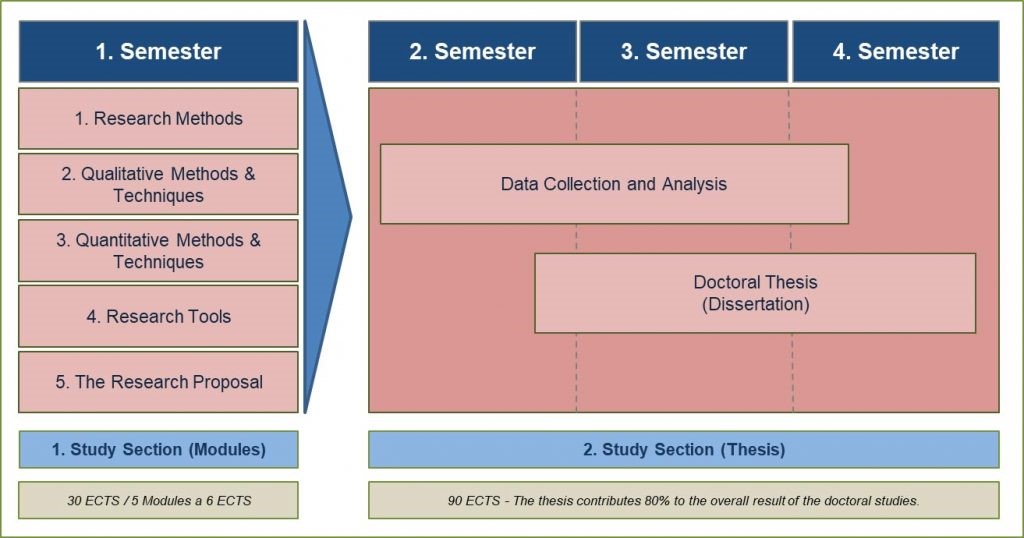Doctor of Business Administration (DBA)
Introduction
Welcome to the SSM DBA program
DBA Studies are one of the most challenging and highest rewarding levels in Higher Education. The Swiss School of Management has developed outstanding Doctor Programs. These programs have unique features, which add significant values to Graduates beyond the rewarding Doctor Degree.
Multiple academic collaborations contribute to the exceptional program quality, starting with the involvement of highly renowned and recognized academics as Directors of Studies. Our Doctor candidates are supported on an individual base by both SSM Professors and visiting Professors from a wide variety of international Universities.
Today, academia has no more borders. Therefore, the knowledge and expertise of experienced academics influence the structure and content of our Doctor Programs, from which candidates can select the option that accommodates their necessity.
The Doctor of Business Administration will be awarded by the internationally recognized Swiss School of Management. The result is based on delivering studies of highest quality and multiple benefits to SSM’s Doctor candidates. Swiss School of Management is committed to impress and to express: impress through the value of the studies resulting in Degrees, which express the outstanding skills of those being awarded. This gives them the possibility to develop a top career in industries, administration and academia.
Two major pathways are offered to Doctoral Candidates. The first pathway is known as Professional Doctorate. The notion ‘professional’ should not be misunderstood. They are by no means only professional qualifications. Professional doctoral studies have been globally developed and are accepted as fully-fledged doctoral degrees. In contrast to PhD studies, their purpose is applied sciences: research in what is called the real world, for application in it. Likewise, the most famous degree pathway here is the Doctor of Business Administration (DBA).
Universities around the globe have extended doctoral studies to these professional doctorates for many good reasons. The industries are very interested in such graduates and this is demonstrated by the results of their job applications, as DBA Degree skills and capabilities go beyond any Master’s graduate. At the same time, these doctoral graduates are practice-oriented. Consequentially, they are the first choice candidates for top-management positions. On the other hand and without any doubt, PhD studies have not lost their reason and attractiveness.
The Doctor of Business Administration addresses research in business, economy and management. The thesis can be oriented by the students’ personal interest and based on their personal work environment. At the end of these studies, students are awarded with the Title of “Doctor in Business Administration (DBA)”.
Before of the Degree awarding, the DBA thesis has to be written and defended in the viva. The thesis argument is about applied sciences. It consists of 50,000 words, which fulfils the criteria of independent research on a superior level and consequentially demonstrates the internationally acknowledged standards of doctoral studies. Type and style of this research are source-oriented on applied sciences, in which a solid theoretical understanding must be evident.
The variety of topics is extensive and candidates can make their own choice upon approval of the Academic Board. The only request is that the selected research relates to management, business and / or economy. Theory and empirically consistent research, which the thesis delivers, are expected on a superior level. An individual Director of Studies will support each student during the development and writing of the thesis. Students will find personal support, but they are expected to work individually, accordingly to the individual nature of such studies on this high level. Therefore, strict limitations on extent and length of such support are applied.
General Study Introduction
Duration of Program
The DBA program has a duration of 4 semesters and requires the acquisition of 120 ECTS-Credits.
Begin of Study
Enrolments are generally accepted throughout the year. Intakes will be announced on the website or via e-mail. Individual academic achievements, such as the portfolio of expertise, intensive courses and tutor coaching services, can be taken at any time.
Learning Structure
The program of studies is aligned to international standards of Higher Education and fulfils the criteria of the process of Harmonisation of Higher Education in Europe. It consists of 5 taught Research Method modules, which are delivered in two blocks. Attendance is required (a distance learning version will be introduced as alternative form of study as well.) The Doctoral Thesis demonstrating independent empirical research are an evidence of the candidate’s ability and capability to undertake applied defendable, empirical research on the highest level of academic studies.
Mode of Study
The DBA program is based on a practice-oriented and part-time study model. On site study, web- based learning, blended learning, distance learning are all combined with work-based study, which is supported by methodical coaching or supervised by faculty and teaching staff.
Assessment
Each module is assessed through one assignment, which consists of an essay addressing all the Intended Learning Outcomes of the module. Students are requested to write a critical review (parts of it) of the existing and actual literature taken from peer-reviewed research publications.
Dissertation and Viva
DBA candidates are requested to submit a doctoral thesis, which fulfils the criteria of independent research following acknowledged standards of empirical research. The thesis consists of 50,000 words (+/- 10%). The DBA candidates will defend their thesis through a summarizing presentation.
Structure and Schedule
The DBA Program structure is aligned with international standards of Postgraduate Education and, accordingly, fulfils the criteria of the process of Harmonisation of Higher Education in Europe (Bologna Process).
The doctoral program will require the accomplishment of five taught Research Methods modules as first stage. Only the successful fulfillment of all five modules entitles students to progress to the second stage, the thesis level.
The successful students will acquire 120 ECTS credits throughout the course:
- 30 ECTS credits through the fulfillment of 5 Research Methods modules (6 ECTS credits per module)
- 90 ECTS credits through the Doctoral’s thesis
The modules are delivered interactively and are based on actual knowledge and research in this pathway. The “Research Methods” modules are taught via lectures and/or seminars and require students attendance. A long-distance learning version will be introduced as alternative form of study as well.
The data collection, the analysis of data and the Doctoral Thesis demonstrating independent empirical research are an evidence of the candidate’s ability and capability to undertake applied defendable and empirical research on the highest level of academic studies.
This program of studies is considered relevant, rich and academically valid thanks to the adoption of the highest standards of Higher Education. Additionally, superior professional standards have been embedded. Learning objectives and module contents are further closely related to the Six Principles of the PRME Framework of the United Nations.

Workshop OUTLINES – Modules
- Research Methods
- Leadership 360 Degrees
- Quantitative Methods & Survey Design
- Qualitative Methods
- Essential Tools
- Thesis


